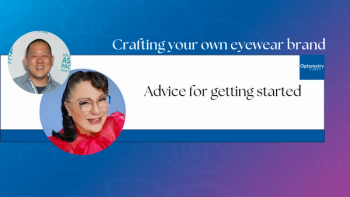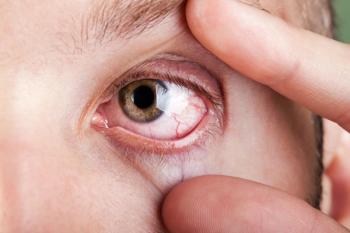
SECO 2023: Sleep disorders impact eye disease
Paul Chous, MA, OD, FAAO, shares key highlights from his 2023 SECO presentation looking at sleep disorders and how they play a role in eye disease.
Paul Chous, MA, OD, FAAO, sat down with Optometry Times® assistant managing editor, Emily Kaiser, to chat about his discussion titled, "Sleep disorders: What eye care professionals need to know," which he presented during the 2023 SECO meeting, in Atlanta, Georgia.
Editor's note: This transcript has been edited for clarity.
Kaiser:
Hi, everyone. I'm Emily Kaiser with Optometry Times and I'm sitting down with Dr. Paul Chous who presented, "Sleep disorders: What eye care professionals need to know," at SECO 2023 in Atlanta, Georgia. Welcome, Dr. Chous, thank you for taking the time to talk to us.
Chous:
Thanks very much for inviting me. I'm delighted to have a chance to talk to you.
Kaiser:
Can you give us a brief overview of your presentation?
Chous:
Yeah. So in this talk, you know, I wanted to make the point, essentially, that we all think of sleep apnea as being the sleep disorder that affects eyes. And in fact, that's true, virtually every eye condition that we worry about is affected by sleep apnea. But there's a whole lot of other prevalent sleep problems like insomnia, and even hypersomnia—excess sleep, that contributes to a bunch of eye diseases that we worry about: things ranging from diabetic retinopathy, to glaucoma, to age related macular degeneration.
And so I talked a little bit about each of these disorders, about systemic diseases, they cause eye disease that are also linked to sleep problems. And some of the things we can practically do and recommend to our patients to get their problems diagnosed early, and also therapeutic strategies for getting better sleep.
As it turns out, a lot of Americans are sleep deprived. And it really does contribute to a whole lot of problems from motor vehicle accidents, to medical errors and the like.
Kaiser:
What do you hope optometrists take away from your talk?
Chous:
This is not something that's based purely on what the data shows in terms of a randomized controlled clinical trial. But for every disease that we kind of analyzed in this talk, there was a sweet spot where the risk of whatever disease we're talking about—heart disease, diabetes, glaucoma, diabetic retinopathy, where the risk is lowest, and that's about seven-and-a-half to seven-and-three-quarter hours of sleep a night.
So that really does seem to be a target for most human beings, that you need to get somewhere between 7.5 and 8 hours of sleep a night to maximize well being. And in fact, patients report that they feel the best when they get roughly 8 hours of sleep a night. And I think a lot of us just aren't getting it.
I related to this one story of a internal medicine doc who works at the hospital that came in and I asked him how he was. And he broke down sobbing, because he had screamed at his favorite nurse at the hospital. And so I had him go home and come back for an eye exam another time, and he had no recollection of this encounter with me. Which just shows, you know, the people that we're most relying on to take good care of us, we can't really tolerate them being sleep deprived in a position where they're not rendering optimal care.
So I think we all need to be aware of that providing health care for others, ourselves, as well as recipients of health care.
Kaiser:
Yeah, absolutely. And is there anything else you'd like to cover that we haven't touched on?
Chous:
You know, what we want to do is encourage people to seek help—to get a sleep study done. If somebody is getting anti-VEGF therapy for whatever disease they're diagnosed with—diabetic macular edema, diabetic retinopathy, macular degeneration—study after study shows that if you treat underlying sleep disorders, patients respond better to the treatment, they need fewer injections into the [inaudible].
So anytime you see a patient with a neovascular disease process, or macular edema, ask them about their sleep quality, and ask them if they've had a sleep study and if not recommend they get one conducted.
Kaiser:
That's really interesting. All right. Well, thank you so much for sharing and this has been really great. So thank you.
Chous:
Thank you so much for asking me, Emily.
Newsletter
Want more insights like this? Subscribe to Optometry Times and get clinical pearls and practice tips delivered straight to your inbox.













































